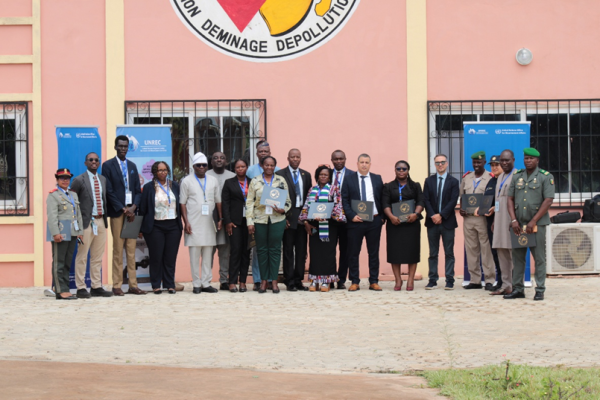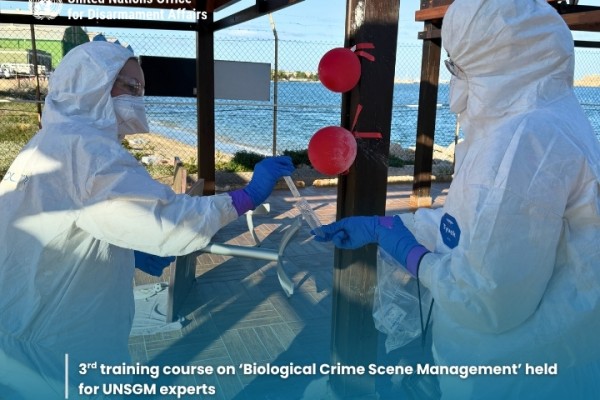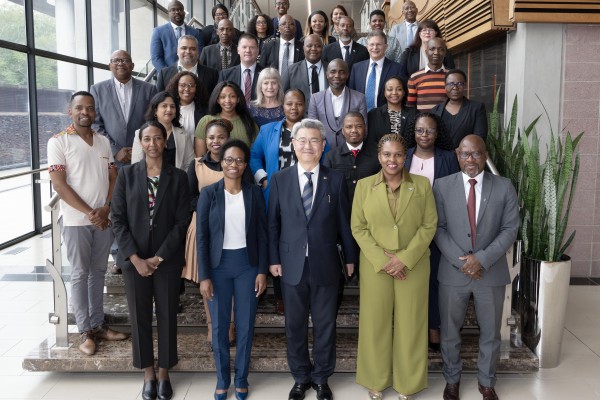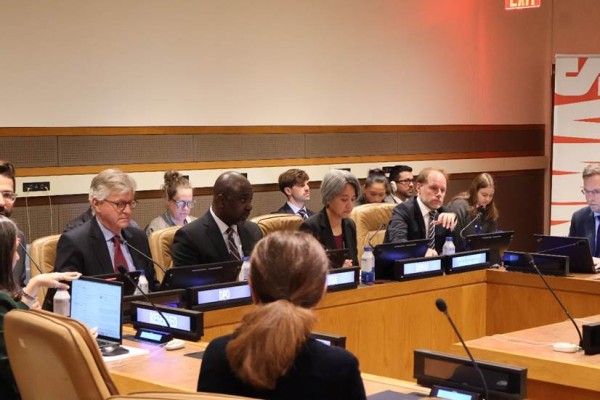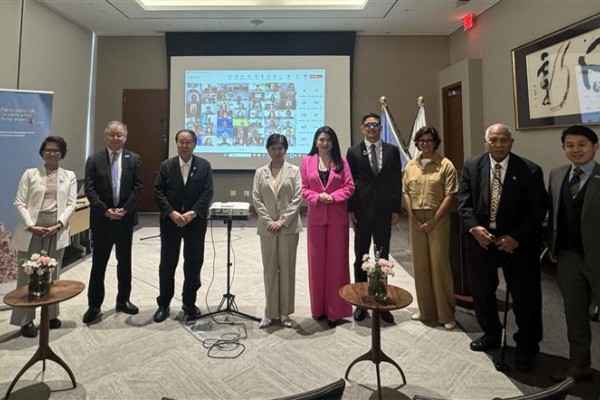16 октября в рамках инаугурационного Форума ООН "Молодежь за разоружение", проводимого при поддержке правительства Республики Корея, молодые лидеры присоединились к экспертам в области ядерной энергетики и дипломатам для участия в углубленной экспертной панели на тему "Дестабилизирующее влияние искусственного интеллекта и информационно-коммуникационных технологий на ядерную стабильность"
Экспертная панель предоставила молодым участникам интерактивную возможность конструктивно пообщаться с экспертами по вопросам взаимосвязи ядерного оружия и новых технологий. Эксперты помогли участникам доработать проект итогового документа с ключевыми рекомендациями, который будет передан делегациям Первого комитета Генеральной Ассамблеи ООН в декабре 2025 года.
Открывая сессию, модератор г-жа Уми Арига-Мейси, научный сотрудник Японского института международных отношений, развернула дискуссию вокруг насущной необходимости понимания рисков, возникающих при пересечении ИИ, кибертехнологий и ядерных командных систем (NC3s). Группа экспертов и участники форума были представлены, чтобы поразмышлять о проблемах и возможностях, возникающих в связи с дестабилизирующим влиянием искусственного интеллекта и ИКТ на ядерную стабильность.
Участница форума, г-жа Дина Тауфик, научный сотрудник Центра исследований энергетики и безопасности, отметила, что недавние исследования показали, что ИИ склонен выбирать более эскалационные варианты. Она также выделила другие риски, связанные с непрозрачностью алгоритмов, предвзятостью автоматики и неправильным восприятием ядерного оружия.

Г-н Джакомо Перси Паоли, руководитель программы по безопасности и технологиям в Институте ООН по исследованию проблем разоружения (UNIDIR), подчеркнул, что развитие ИИ обычно недооценивается и что следующее поколение потенциально может превзойти по производительности следующее поколение ИИ в 2027 году. Он также отметил, что, несмотря на то, что интеграции ИИ в ядерные системы командования, управления и связи (NC3) можно легко избежать, проблема интеграции ИИ в процесс принятия решений в ядерной сфере может стать уязвимым местом как с точки зрения безопасности, так и с точки зрения кибербезопасности.
Г-жа Бейза Унал (Beyza Unal), Управление ООН по вопросам разоружения , руководитель отдела науки и технологий, рассказала о многочисленных уязвимостях на стыке ИИ, кибернетических и ядерных систем. Она отметила, что многие инфраструктуры NC3 и производства все еще полагаются на устаревшие технологии и хрупкие цепочки поставок, что делает их открытыми для потенциальных слабых мест в их кибербезопасности. Кроме того, она подчеркнула многочисленные проблемы безопасности, связанные с опережающим развитием кибертехнологий по сравнению с тем, сколько времени требуется для интеграции новых технологий в уже существующие системы ядерного оружия.

Г-жа Патриция Яворек, директор программы глобальной ядерной политики в Инициативе по сокращению ядерной угрозы (NTI), рассказала о том, как риски, связанные с ИИ, начали фигурировать в обсуждениях ДНЯО и связанных с ним инициативах, таких как вклад Стокгольмской инициативы в работу третьего Подготовительного комитета и недавние многосторонние усилия, такие как Совместное заявление Байдена и Си 2024 года. Она подчеркнула, что связь ИИ и ядерного оружия представляет собой не только технологические и структурные, но и политические и институциональные проблемы.
Г-жа Эрика Кампос, Второй секретарь Постоянного представительства Бразилии при ООН, рассказала о двух резолюциях, представленных на рассмотрение Первого комитета в этом году, в которых рассматриваются аспекты ИИ и новых технологий. Она также призвала к взаимодействию через такие механизмы, как Зоны, свободные от ядерного оружия, и Группа правительственных экспертов по проверке ядерного разоружения, для решения вопросов, связанных с ИИ и ядерным оружием.
Участник Форума г-н Леонард Гюнцель, выпускник, ответственные инновации в области ИИ для мира и безопасности, UNODA, подчеркнул недостаток образования в области ответственной инженерии. Он подчеркнул необходимость ответственного и этического инженерного образования и призвал как политиков, так и инженерное сообщество больше заниматься общественными проблемами и друг другом.
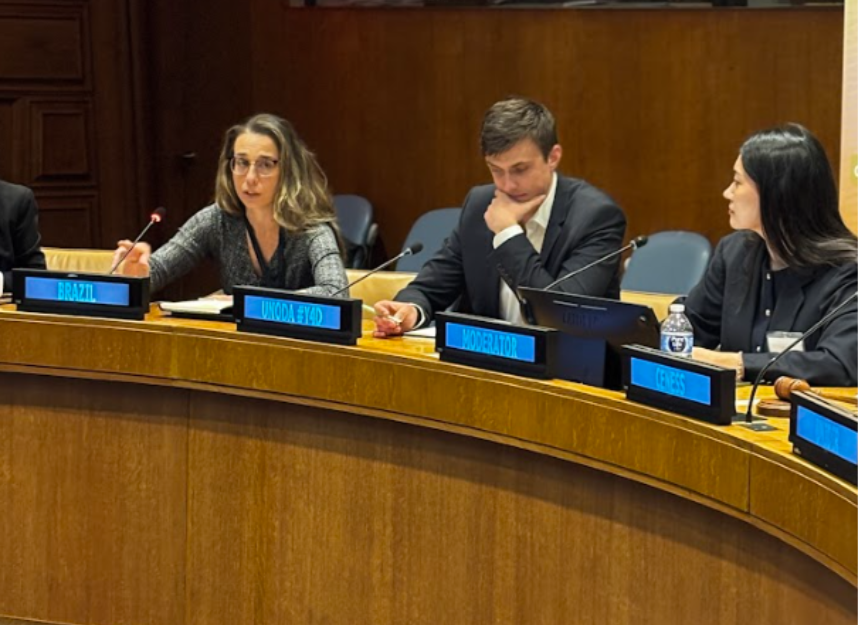
Во время интерактивной части вопросов и ответов участники обсудили проблемы верификации, системы управления и способы преодоления разрыва между политическим и техническим сообществами. Эксперты призвали к созданию общих таксономий, промышленных стимулов для ответственного ИИ, а также к расширению возможностей для стипендий и обучения, чтобы способствовать междисциплинарному пониманию. Они также предложили официально включить обсуждение ИИ в будущие обсуждения ДНЯО по вопросам прозрачности и подотчетности и подчеркнули, что долгосрочные решения будут зависеть от инноваций и вовлеченности молодых лидеров.
В заключение участники и эксперты подчеркнули важность продолжения диалога между молодежью, политиками и научным сообществом для обеспечения стабильности между ИИ и ядерными технологиями. Они подчеркнули, что преодоление разрыва между быстро развивающимися технологиями и сферой управления будет иметь ключевое значение для предотвращения просчетов и сохранения глобальной безопасности.
